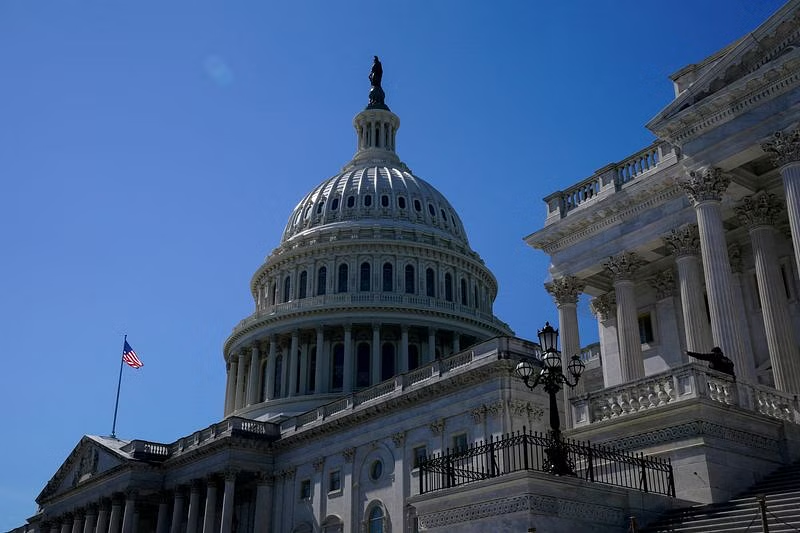US Lawmakers introduce groundbreaking legislation granting every American the fundamental right to online privacy, signaling a monumental shift in digital rights protection.
Two driving US legislators have arrived at a bipartisan arrangement that could, interestingly, award all Americans an essential right to computerized security and make a public regulation directing how organizations can gather, offer and utilize Americans’ internet based information.
In the event that it succeeds, the proposition could lay out what could be compared to the European Association’s milestone security regulation known as the Overall Information Insurance Guideline (GDPR), and get control over what protection advocates say is an untamed and unregulated space where Americans’ own information can excessively effectively be shared and offered to the most elevated bidder.
The proposed understanding would make a phenomenal, single government standard overseeing computerized security in the US and mirrors a critical leap forward following quite a while of slowed down dealings among conservatives and liberals.
Be that as it may, it could likewise supersede the absolute hardest state-based security regulations in the country, like in California.
The arrangement comes as private information has progressively turned into the soul of the advanced economy and as man-made reasoning organizations have hustled to hoover up as quite a bit of it as possible to prepare modern simulated intelligence models that could change society.
On Sunday, the administrators in question — Washington Sen. Maria Cantwell, the Vote based seat of the Senate Trade Advisory group, and Washington Rep.

Cathy McMorris Rodgers, the conservative who drives the House Energy and Business Panel — declared a proposition they said would return control of individual information to American buyers.
The conversation draft, which was delivered over the course of the end of the week however has not yet been officially presented as regulation, covers information representatives, tech stages, telecom suppliers and essentially every other sort of association a web client could cooperate with consistently, except for private ventures and government project workers.
The legislators’ proposed American Security Privileges Act would boycott the exchange of Americans’ delicate individual information to outsiders — including geolocation chronicles, monetary information, biometric data and schedule and telephone logs — except if a client gives unequivocal endorsement to the information or the sharing is for one of a few explicit purposes permitted under the bill, for example, forestalling extortion.
It would allow clients to quit designated publicizing through and through and expect organizations to gather just an adequate number of information as the need might arise to do their business.
What’s more, it would ensure Americans the option to demand duplicates of their information, to address it or even to have it erased from an organization’s records.
Furthermore, in a sign of approval for developing worries about whether Americans’ own information might be accessible to unfamiliar enemies, for example, China and Russia, the regulation would expect organizations to unveil to US purchasers whether their data might be shipped off, put away or handled in one of those nations.
US authorities have voiced worries about whether TikTok client information could be gotten to by the Chinese government, however it doesn’t stop there: The Biden organization and US administrators have likewise featured information specialists as one more possible way for unfamiliar legislatures to acquire Americans’ own information.
The draft regulation breaks a yearslong halt among conservatives and liberals over the extent of any public security bill. The two gatherings had long differ more than two central points of interest:
Whether a government security regulation ought to supersede existing state security regulations that might give harder insurances, and whether private residents ought to have the option to bring their own claims against organizations blamed for disregarding their protection.

The current week’s arrangement seems to determine the two issues. It would seize in excess of twelve state protection regulations currently on the books in states like California, Texas and Virginia. Also, it would empower people to sue organizations for infringement of the proposed regulation.
“This bipartisan, bicameral draft regulation is the best open door we’ve had in a very long time to lay out a public information protection and security standard that gives individuals the option to control their own data,” said McMorris Rodgers and Cantwell in an explanation.
The regulation has a difficult experience ahead: It should in any case clear both of the legislators’ panels and pass the two offices of Congress to come to President Joe Biden’s work area. Strategy specialists have anticipated slim chances of Congress passing a lot of regulation in the months paving the way to the 2024 political race.
McMorris Rodgers has likewise declared she won’t run for re-appointment, which could entangle the bill’s future after perhaps of its most impressive co-support goes out.
Read More News
- Alert: Expert Says Tesla Stock Might Plummet to $14
- Trump’s Financial Woes: Will Truth Social Rescue Him?
Click here for the latest news of all over the world – Insightsyncs, your source of news.





